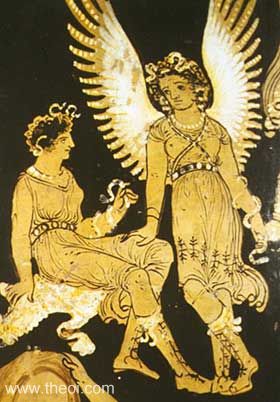 Some years ago I somehow stumbled into an email exchange with a doctoral student on the other side of the world who kindly let me preview a chapter of the thesis he had been working on. Since I recently noticed his thesis has since 2006 been commercially published as Foreign but Familiar Gods: Graeco-Romans Read Religion in Acts I feel free to share the contents of that chapter now.
Some years ago I somehow stumbled into an email exchange with a doctoral student on the other side of the world who kindly let me preview a chapter of the thesis he had been working on. Since I recently noticed his thesis has since 2006 been commercially published as Foreign but Familiar Gods: Graeco-Romans Read Religion in Acts I feel free to share the contents of that chapter now.
Lynn Kauppi argues that the scene in Acts where Paul is brought before the Areopagus to explain himself partly on the impression that he is introducing new gods to Athens was inspired by a scene in a play well-known to Greek speakers of the day.
The play is Eumenides, the third in a trilogy of plays composed by Aeschylus around the 450’s bce. The name Eumenides refers to devotees of the Furies (Erinyes). These Furies pursued and tormented one who had murdered his own mother.
In the first play of the series King Agamemnon returned home victorious from the Trojan war but was murdered by his wife, Clytemnestra. In the second play their son Orestes was moved by his sister and the god Apollo to avenge his father’s death by killing his mother.
The third play, the one said to contain the influences on the author of Acts, contains the resolution of the moral conflicts built up in the first two plays. On Apollo’s advice Orestes flees to Athens seeking escape from the torment of the Furies. Meanwhile the ghost of Clytemnestra rises up from the dead to rebuke the Furies for not completing their just vengeance on her son.
In Athens Orestes is met by the goddess Athena who listens to his case and also hears the counter-claims of the Furies. Unable to determine the rights and wrongs of the matter alone she founds the court of the Areopagus to help her decide the case. Orestes appears at this court, the Areopagus, along with his prosecutors, the Furies, and his defender, the god Apollo. The court is divided so the goddess Athena casts the deciding vote in favour of Orestes, thus cleansing him from the stain or pollution of blood-guilt and setting a precedent for mercy over justice. When the Furies threaten to destroy Athens in retaliation a shrine is established for them and a procession is held in their honour by the Athenians.
The outline of the play does not encourage the modern reader to suspect it may contain an influence on the author of Acts.
But Kauppi argues that the play was well-known in the early Christian era and did influence other writings of the time; and that a Graeco-Roman reader of Acts would likely recognize allusions in the play to “the resurrection” from the dead, the role of the Areopagus in examining the central character and the theme of the introduction of new gods into Athens. Continue reading “Paul’s sermon on the Areopagus inspired by the Muses”
